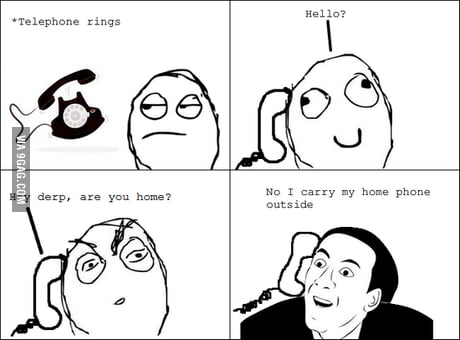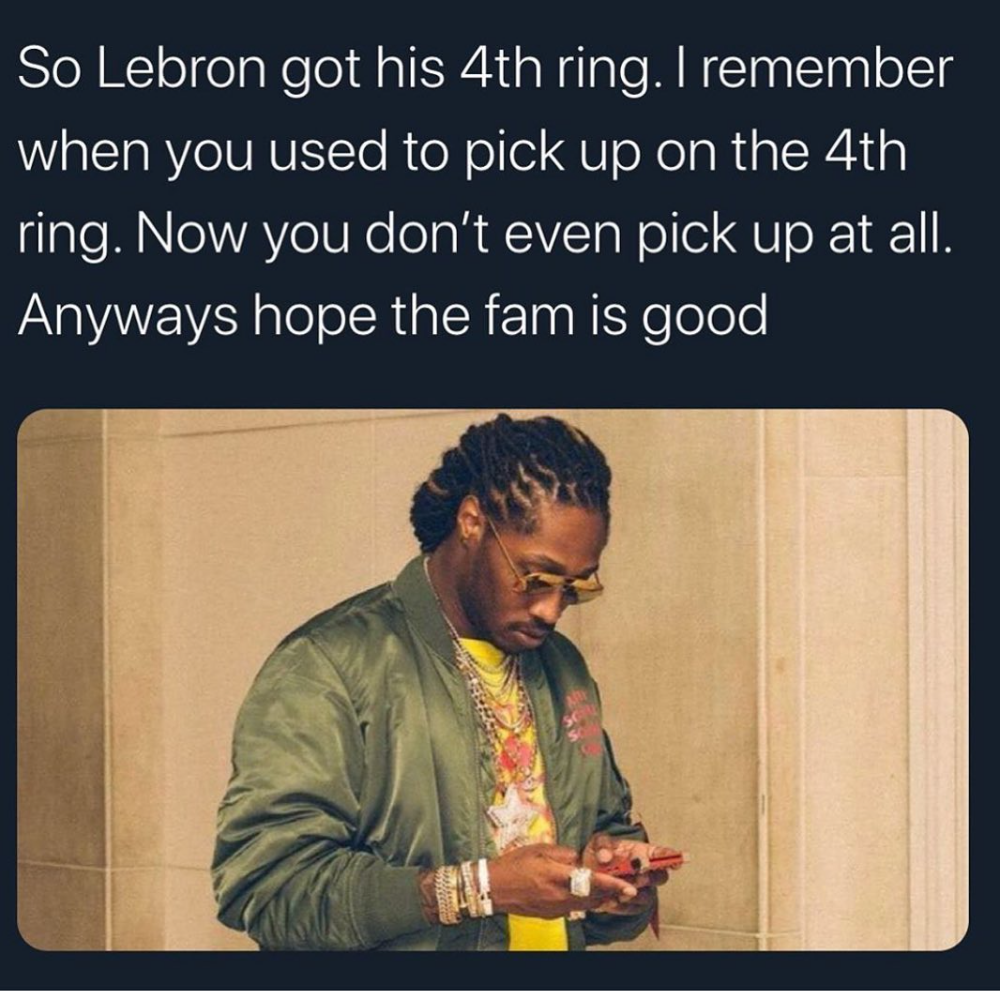I remember when memes became a big thing in the early 2010s. From Bad Luck Brian, Doge and Leonardo DiCaprio holding a champagne glass while fireworks go off behind him, my preteen self was absolutely hooked from the start. The fun part about the whole thing was that you can use pretty much anything and turn it into a meme just by adding a funny text on the bottom. The playing field was open to anyone who wanted to join in on the laugh. Even I created my own memes back in middle school, and would share these with my friends. At the time, there was a plethora of different meme jokes and catchphrases that went viral, most of them distributed by the popular website at the time, 9gag. People created memes out of everything: hand-drawn cartoons, to random old family photos and even stills of movie scenes were all used to create a funny story:

To get back to my point though, the early format of memes played an integral part in shaping my sense of humor at the time, and as memes evolved, so did my sense of humor. Of course, memes no longer contain large white texts at the bottom of a picture, and we no longer use the terms “derp” and “me gusta” (at least I hope we don’t), but the world of memes have expanded and evolved rapidly since its early days. In fact, memes are still very much created and distributed over social media platforms; it seems as though every week there is new trending meme on twitter. However, I’ve noticed recently that more people are adopting the meme humor into their real life conversations and mannerism as well. This is especially notable among the Gen Z collective, where internet memes or catchphrases appear in the way they communicate with or react to each other.
Vine and the new wave of memes
As I can recall, after the derp era of memes, the next wave of internet memes came mainly through vine. This was a popular, yet short lived app released in 2013 and shut down in early 2017. The premise was that users could make 6-second videos and post them on the app. Despite the 6-second limitation, the app was very successful; millions of users used the app to record moments in their lives or even went one step further and created comedy skits and other forms of entertainment. Along with these, came the new wave of catchphrases and meme videos. One of the most popular meme to have come out of that era was the “when…” catchphrase. People usually used these to comment on something that has already happened. For example, let’s say we see our dog sleeping sprawled on the carpet with his tongue hanging out, it’d be funny to say someone like “when I come home drunk and fall asleep on the couch”. Kind of like a cause-and-effect type of joke. Of course, as memes are always evolving, some versions of the “when” catchphrase started to become more non-sensical and random. One of the most viral “when” meme (and my personal favorite) was the “when your pizza rolls are done”, and the boy just whips and walks away:
This meme became so viral that people would used this even in real life. I remember there was a period of time in where my friends and I constantly made “when” jokes for every situation we saw or experienced. And these types of jokes were understood by everyone around us too. Almost everyone in school knew why the “when” joke was funny and everyone participated in it.
Another famous meme that went viral on vine was Nick Colleti’s “WTF is up Kyle?!”. Another brilliant meme that everyone started using in real life too. Heated arguments, play fighting, trying to get your friend to stop messing with you always included a “WTF is up Kyle?! Step the F up!” monologue which would making everyone burst into laughter.
TikTok, Twitter and the lastest trending memes
After Vine shut down, many people migrated from the 6-second platform to others, like Instagram, Twitter, and now TikTok. With this wave of migration came another wave of new memes through these platforms. Most, if not all of these new memes have similar characteristics to the derp era and the vine era memes. Twitter and TikTok especially became a place where the most viral memes were produced, some of them being short clips and others just written blocks of joke with a picture attached to it. It’s hard to say the exact origin of the latest viral memes, mostly because they are used as often on Twitter as they are on TikTok, but here are two viral memes to have recently come out:
“It’s the __ for me”. This catch phrase became popular on TikTok when people were seen throwing insults at their friends (jokingly, of course). The premise is that you fill in the blanks with a characteristic of the other person that usually gives you disgust. The trend became a viral challenge on the app, where people would say the most specific things. And that is essentially the point: make it as specific (and long) and get the other person to laugh.
Toxic Future meme. This meme was created on twitter, and it involves a picture of the American rapper Future on his phone. Future is allegedly a notorious playboy, and the premise of this meme was to create a scenario in which a “toxic” guy would find an excuse to get (back) into your life. This prompted a lot of tweets from guys using the same kind of playboy suave to either hit on girls or to just make them laugh. Of course every girl knows this is toxic behavior, but some of those lines were pretty funny.

Internet memes: A threat to the English language?
Because of the specific context that surround most viral memes, and how people are increasingly incorporating them into their daily conversations, it can be confusing for an outsider to hear someone talk in what is often called “internet language”. Some people have tried to argue that internet language could potentially be ruining the traditional semantic building blocks of the English language. And while some of the references to memes can sound non-sensical and confusing, I don’t personally think it can ruin the English Language. Most of the time young people talk like this around their friends or close family members. I have personally never heard someone my age or younger talk in internet to someone important or in situations where they have to be serious. If anything, the growing “internet talk” in daily lives is only a representation of an ever-growing subculture: internet culture. Just like all countries or communities have their own way of expressing things, Gen Z and Millennials have their own way of communicating through memes.


Ah, the good old days of 9gag! In a way, I miss the website. I remember discovering it in my mid-teens when it just started in 2008 and spending hours on it every day, even creating my own rage comics. I agree with you, my vocabulary has also changed a tiny bit inasmuch as I incorporate expressions commonly used in Vines and other similar platforms when talking to my friends. But things have changed in a sense, at least for me: unlike back in the 00s or early 10s, there are too many meme trends occurring each day to actively keep up with the abundance of novel internet lingo. I don’t think it’s necessarily a threat to the written English language when it comes to correspondance regarding matters of administrative or business nature. Sure, my friends and I goof around and “write” in memes to each other but we’re old enough to know how to speak and write in English properly when need be. On the other hand, younger Zoomers such as my teenage cousin who is learning English in school, is experiencing difficulties differentiating between correct and incorrect syntax, pronounciations etc. due to her spending a lot of time on TikTok and being exposed to English meme-lingo and subsequently assuming that’s the correct way to communicate in English. Nonetheless, maybe her experience is not so detrimental to her learning a language at all: when I was her age, people in my high school could barely utter a correct sentence in English whereas nowadays we have kids who are familiar with the linguistic patterns and semantics in a language that is not their mother tongue. I suppose there must be some benefit society can reap from having a brain re-wire, comprehend and interpret virtual social styles of communication at a young age?
This was such a fun blog to read!! I have been around through all these amazing meme eras and my vocabulary definitely has and continues to be impacted by popular memes. You bring up an interesting point by asking whether this puts the English language at risk. This question reminds me of what a “boomer” would say. Though I understand why someone from an older generation would be worried, I agree with you that it won’t threaten the English language. As someone that uses the internet “meme language” I may use it in my private life with friends but I haven’t let it impact my academic life. The fact that social spaces have created new vocabulary I think establishes a boundary where most people will see these words as something to be used in those daily digital spaces themselves, and not in a corporate/academic context. Also, I would argue that memes can actually bring more people together! Because most young people live their world online and memes continue to be shared on a more global scale due to the global nature of the apps, I feel that it can help with community building and may encourage non-English speakers to learn the English language in order to participate in meme-sharing/making. Great post and great memes!
very ‘classic’ examples! personally, at first, i wasnt super familiar with the most popular formats but it was because of a language barrier. i mostly know the older memes, like derp and so on, from my country’s specific website these ‘comics’ were shared on. i also didint really experience vine in its ‘prime’ but i was there for when youtube vine compilations were hugely popular. if i played one of them i would most likely still be able to recite some of the videos. i think that was the biggest success of vine, the easy to remember concepts with a rather simple punchline. tiktok was innitially vine 2.0 but now, at least for me, it became something different, merging many platforms. with memes themselves, i truly enjoy some rather incomprehensible ones with the whole point of them being to have no real point. an almost cryptic stupidity with an image behind it can be a very satisfying genre of image. 😀